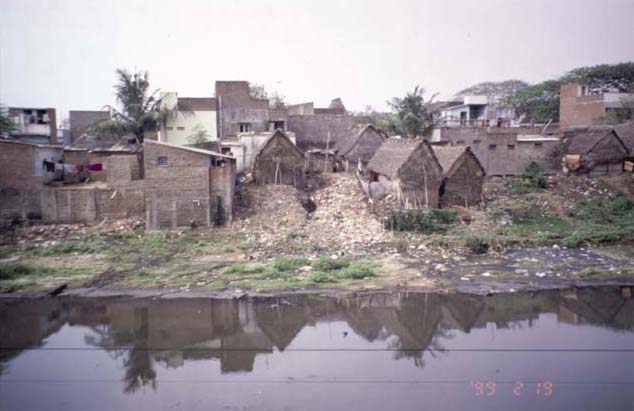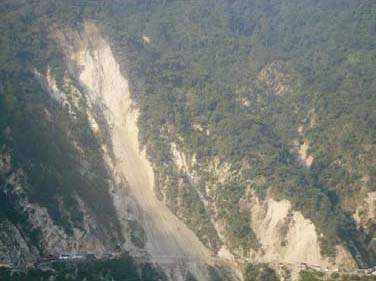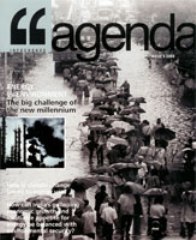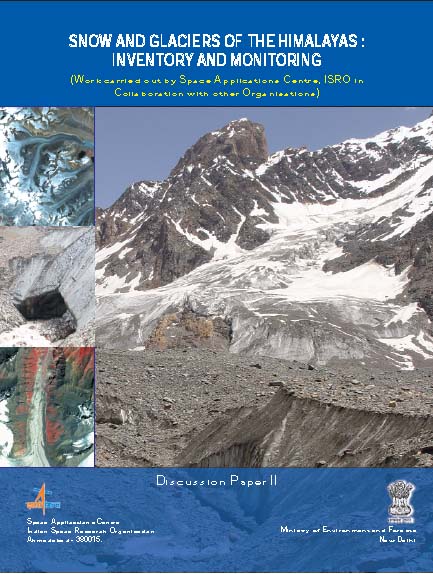Climate Change
Urban floods in Bangalore and Chennai – Risk management challenges and lessons for sustainable urban ecology – A paper in Current Science
Posted on 22 Jun, 2011 10:23 PM Two important metro cities of India, viz. Bangalore and Chennai are discussed. The aim of the study was to understand the problems of increasing flooding incidences in urban areas and related contexts of urban development and ecological issues. Data of secondary origin have been collected and interpreted in the context of flood risks and urban management. The paper also conveys wider issues and lessons for flood challenges in Indian cities and towns.
Two important metro cities of India, viz. Bangalore and Chennai are discussed. The aim of the study was to understand the problems of increasing flooding incidences in urban areas and related contexts of urban development and ecological issues. Data of secondary origin have been collected and interpreted in the context of flood risks and urban management. The paper also conveys wider issues and lessons for flood challenges in Indian cities and towns.
Recent landslides in Uttarakhand - Nature’s fury or human folly – A paper in Current Science
Posted on 21 Jun, 2011 10:22 PM However, increasing anthropogenic intervention in the recent times appears to be contributing to terrain instability in addition to natural factors, as observed by increasing frequency and magnitude of landslides since 1970.
However, increasing anthropogenic intervention in the recent times appears to be contributing to terrain instability in addition to natural factors, as observed by increasing frequency and magnitude of landslides since 1970.
During August and September 2010, Uttarakhand Himalaya witnessed large-scale slope destabilization, particularly along the roads where widening work was in progress leading to huge damage. The cause of regional-scale landslides has been attributed to exceptionally high rainfall in the region during September. When the average rainfall for the month of August and September from 2000 to 2009 is compared with rainfall data of the same period of 2010, it was found that in September 2010, 336 per cent higher rainfall was received by the area. However, the question that arises is: was it unusual rainfall-induced calamity or a result of human intervention?
Applications invited for CCMP Media Fellowships 2011 to the UN-COP17 climate summit at Durban - Apply by June 30, 2011
Posted on 21 Jun, 2011 04:08 PMThe Climate Change Media Partnership (CCMP) supports developing world journalism and perspectives from the heart of the international climate negotiations. The CCMP encourages public debate and scrutiny on climate change issues in the media at the local, national and international levels.
CCMP is proud to announce the launch of a fellowship programme that will send journalists to the United Nations Climate Change Conference in Durban (COP17)to be held during November 28 - December 9, 2011 .
Understanding the local controls of glacial retreat from the Baspa valley in Himachal Pradesh – A paper in Current Science
Posted on 21 Jun, 2011 03:01 PMIt explores the understanding of the local controls on the retreat of glaciers of the Baspa valley in Himachal Pradesh. The geomorphic records mapped are accumulation zone, exposed ablation zone, moraine-covered ablation zone, snout, deglaciated valley, lateral moraine, medial moraine, terminal moraine and hanging glacier.
"Climate change" - Understanding the connections with energy use, and how India's galloping economic growth and insatiable appetite for energy can be balanced with environmental security?
Posted on 18 Jun, 2011 12:52 AM
Introduction: Energy versus emissions: The big challenge of the new millennium
By Rakesh Kalshian
To maintain its economic growth rate of 8-10%, India needs all the energy it can get. But the momentum of economic growth overrides crucial environmental concerns.
Hotting up: The science and politics of climate change
By Aditi Sen
The world is hotting up. Climate systems are changing. The 1990s were the hottest decade ever, sea levels rose by 10-20 cm during the 20th century, and atmospheric carbon dioxide levels are 31% higher than in 1750.
Call for entries to fifth annual 'Postcode Lottery Green Challenge' - Apply by July 29, 2011
Posted on 17 Jun, 2011 05:07 PM The Postcode Lottery Green Challenge is for people who can instigate change – creative, innovative thought leaders and their organisations.
The Postcode Lottery Green Challenge is for people who can instigate change – creative, innovative thought leaders and their organisations.
The Postcode Lottery Green Challenge, an initiative of the Dutch Postcode Lottery, calls on creative, innovative thinkers around the world to submit ideas for green products and services. This is an international competition that welcome ideas for sustainable, creative and innovative products and services. The winning inventions must reduce CO2 output and be realisable within two years.
Indian Youth Climate Network is looking for ten positions in its Organisation Development Unit
Posted on 15 Jun, 2011 12:03 PM
The Indian Youth Climate Network (IYCN) is a network of young people in 18 states who are concerned about climate change & environment issues. The purpose of IYCN is to bring the voice of Indian youth on the global platform as South Asia is one of the most vulnerable regions affected by potentially catastrophic climate change & environment issues.
Changing with the seasons: How Himalayan communities cope with climate change - A report by Peoples’ Science Institute
Posted on 14 Jun, 2011 10:51 PMMountain areas and communities are susceptible to climate change. This work also yielded evidence of the coping strategies developed by the communities to deal with an unprecedented and only partially understood threat. This paper describes these strategies and attempts to assess the vulnerability of the communities in each valley.
Snow and glaciers of the Himalayas – A study by Indian Space Research Organisation
Posted on 14 Jun, 2011 07:58 PM The study on “Snow and Glacier Studies” was taken up by the Space Applications Centre, Indian Space Research Organisation (ISRO) and executed in collaboration with fourteen research organizations and academic institutions of the country, at the behest of the Ministry of Environment and Forests.
The study on “Snow and Glacier Studies” was taken up by the Space Applications Centre, Indian Space Research Organisation (ISRO) and executed in collaboration with fourteen research organizations and academic institutions of the country, at the behest of the Ministry of Environment and Forests.
Himalayan mountains contain important natural resources of frozen fresh water in the form of snow and glaciers. These glaciers are unique as they are located in tropics, high altitude regions, predominantly valley type and many are covered with debris.
The great northern plains of India sustain on the perennial melt of snow and glaciers meeting the water requirements of agriculture, industries, domestic sector even in the months of summer when large tracts of the country go dry. Therefore, it is important to monitor and assess the state of snow and glaciers and to know the sustainability of glaciers in view of changing global scenarios of climate and water security of the nation. Any information pertaining to Himalayan glaciers is normally difficult to be obtained by conventional means due to its harsh weather and rugged terrains.
350.org is looking for two interns at Hyderabad - Apply by 15th June, 2011
Posted on 14 Jun, 2011 01:29 PM350.org is building a global grassroots movement to solve the climate crisis. Our online campaigns, grassroots organizing, and mass public actions are led from the bottom up by thousands of volunteer organizers in over 188 countries.
350.org is looking for two interns to join its India campaign based in Hyderabad, Andhra Pradesh. 350.org works with multiple organizations in India and with a South Asian focus, aims to raise public awareness about the climate crisis and strengthen the region’s environmental movements.





